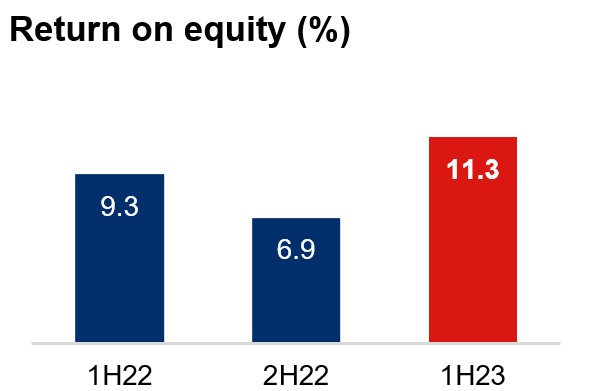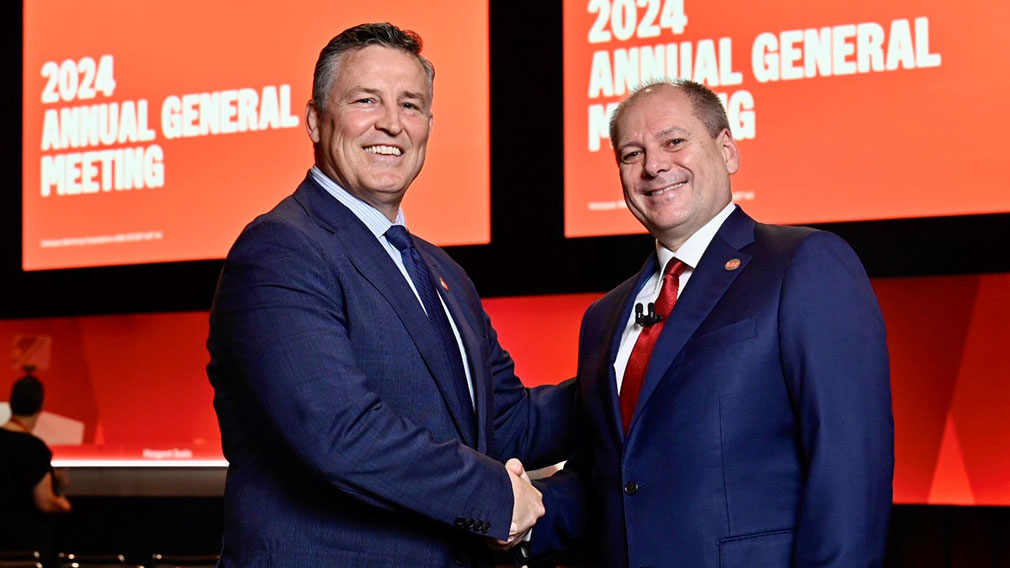King: Strong result sees bank well placed for tougher outlook
Chief executive officer Peter King said Westpac was in a strong position to navigate potentially challenging economic conditions over the remainder of 2023, after the bank reported a 22 per cent increase in first-half profit compared to the same period a year ago.
Net profit for the six months to March 31 was $4 billion, while return on equity rose by 205 basis points to 11.3 per cent. That enabled the bank to increase the interim dividend to 70 cents per share, up from 61 cents last year.
“I was very pleased with our progress this half. We had a good financial result and the balance sheet is the strongest I've seen it,” King said, in a Wire interview. “Good lift in revenue, and costs were down, and that really drove the strong result.”

The bank’s CET1 capital ratio rose to 12.3 per cent, putting the balance sheet on a strong footing heading into what could be a tougher patch for the economy.
The level of stressed assets was little changed in the half, however credit impairment provisions have increased, reflecting the downgrade in economic forecasts. Meanwhile, credit growth is expected to moderate as the impact of 11 interest rate increases from the Reserve Bank works its way through the economy.
Mortgage lending grew over the half, and King said delinquency rates remain low. Still, he acknowledged that higher interest rates, along with broader cost of living pressures, would make repayments difficult for some customers. The bank is encouraging customers to get in contact early if they need time to adjust, he added.
The bank is also operating in a highly competitive mortgage market, with King saying in March that it was the toughest he’d seen across his entire career in the industry. The bank has “grown in a disciplined way in mortgages,” he said in posting the result.
Net interest margin improved by 5 basis points to 1.96 per cent, in line with the broad industry trend, but remains low in historical terms. Core NIM, which excludes notable items, and Treasury & Markets, expanded by 20 basis points to 1.90 per cent.
“I'm really pleased with the way we've managed margins this half,” said chief financial officer Michael Rowland. “We're conscious of the impact on customers, but it is a very competitive landscape that we operate in.”
The bank continued to reduce its cost base, with the expense to income ratio declining to 45.9 per cent. That reflects over $1 billion in savings since the 2020 financial year.
“Importantly, we've been able to simplify our processes, and make the experience for our customers better,” Rowland said.
The focus of cost reporting will switch from an absolute expense target to the expense to income ratio relative to peers, to better reflect the impact of inflationary pressures, regulatory requirements, and the bank’s focus on growth.
Most business segments reported profit growth over the first half, with business and institutional banking in particular seeing a strong improvement.
Westpac exited a further two non-core businesses in the half and opened its 50th co-located branch, which King said reflected the progress made on making a simpler, stronger bank.
“The progress we have made sees us in a position to increase our growth aspirations over time in key markets such as business lending, while managing downside economic scenarios.”
Westpac has embarked on a refreshed strategy, underpinned by four priority areas: putting customer care at the heart, being easy to do business with, providing expert solutions, and advocating for positive change.
“We're looking through some of the short-term challenges and thinking about where we want to take the bank in the medium term,” King said. “We're in a really good shape heading into what will be a tougher outlook.”
For full disclosure of the bank’s full year results, visit the 1H23 results hub.



